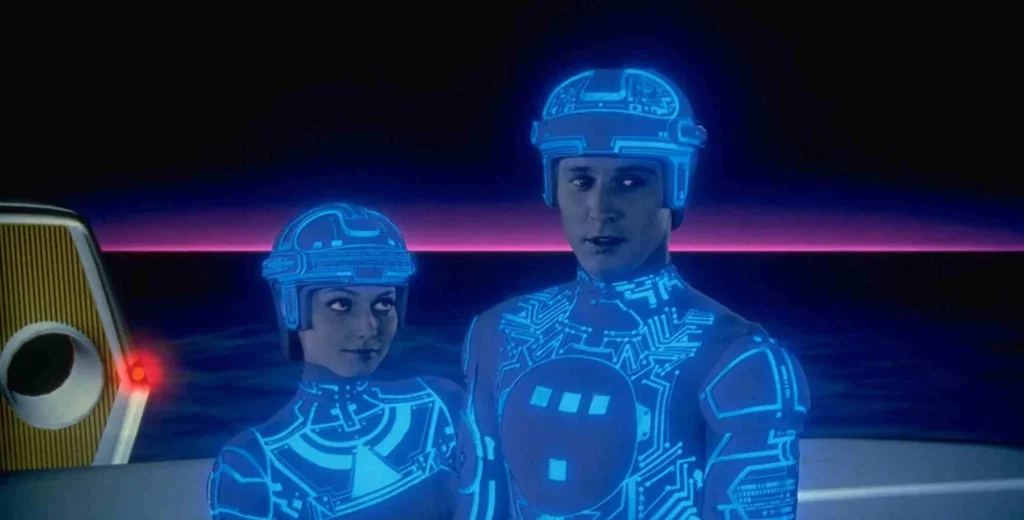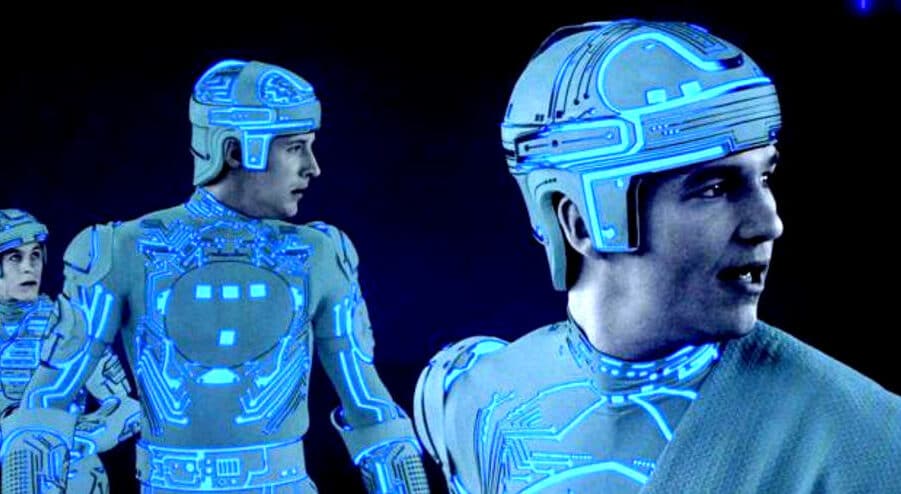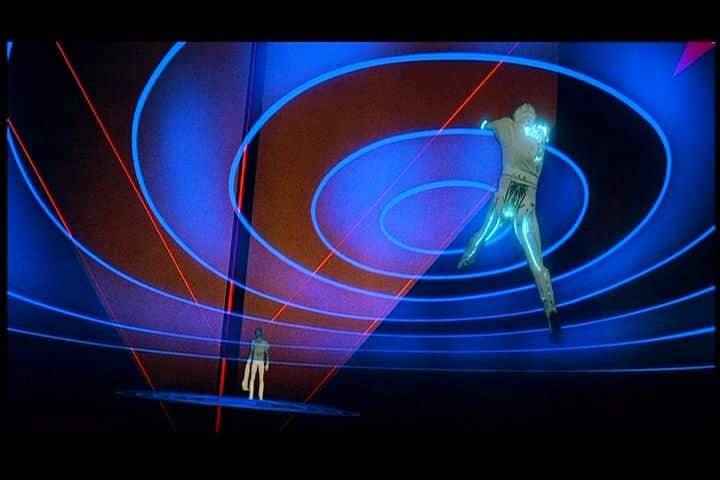Read also:
How to Watch FX Live Without CableHow To Watch AMC Without CableHow to Watch ABC Without CableHow to Watch Paramount Network Without CableA look back at the notorious sci-fi bomb that ended up becoming one of the most influential movies in the genre.
Following the 1966 death of Walt Disney, the people charged with running the film studio bearing his name went into an extended period of creative paralysis that came very close to running it into the ground. So obsessed with the notion of “What would Walt do?” that they wound up repeating formulas that had worked before, it resulted in a forgettable series of films involving place-kicking mules, overly hirsute political candidates and the further adventures of Herbie the Love Bug. As for their once-vaunted animation division, that had become increasingly moribund, because the style of animation that made Disney famous was now perceived as being too expensive and time-consuming to be profitable.
The irony is that if they had really contemplated the question of what Walt might have done, they would have realized that he’d have likely done the same thing he had done throughout his career—take bold artistic and technological gambles that might not always pay off immediately but which would more than prove themselves over time. At some point—probably soon after the release of Star Wars, exactly the kind of movie that Disney might have made—the executives must have realized this, and when the studio was at its lowest point, they finally began to take a few artistic risks with such films as The Black Hole, Never Cry Wolf and the highly underrated adaptation of Ray Bradbury’s Something Wicked This Way Comes.
The studio’s biggest and boldest roll of the dice came in 1982, when it unveiled Tron, a film that took the current rage for coin-op video games and used it as the basis for an adventure that would take viewers into the world found inside one of them. Although writer-director Steven Lisberger initially conceived of the projected as a standard animated feature, he eventually decided that the best way to bring his vision to life was via a combination of live-action, backlit animation (a process in which animation mattes are filmed with light shining through them in order to produce a glowing effect) and the most significant application to date of computer-generated imagery, resulting in a look that would set it apart from anything that had been seen before on a movie screen.

The story designed to showcase these innovations revolves around Kevin Flynn (Jeff Bridges), a hotshot computer programmer who worked at the ENCOM corporation until Ed Dillinger (David Warner), a rival at the firm, stole the ideas for a number of video games that Flynn had developed and used them to move up the corporate ranks. Now running a video arcade (featuring a collection of games that viewers of a certain age will no doubt swoon over), Flynn is convinced that if he can successfully get inside the ENCOM mainframe, he can find proof of Dillinger’s theft. With the aid of former co-workers Alan Bradley (Bruce Boxleitner) and Lora Baines (Cindy Morgan), he sets out to do just that.
What he doesn’t count on is the Master Control Program, a self-aware artificial intelligence system devised by Dillinger to break into other systems to steal and absorb computer programs. Those that he cannot use are sent to play in a series of game programs that will almost certainly lead to their destruction. Knowing what Flynn is up to, the MCP zaps him with a laser that digitizes him and puts him into the computer system itself. Inside, he manages to connect with Tron (Boxleitner), an independent security system devised by Alan to serve as a counter-measure to the MCP and they, along with fellow program Yori (Morgan) set off to find the information needed to stop the MCP for good, while its chief enforcer, Sark (Warner), follows in hot pursuit.
From a narrative standpoint, Tron is somewhat flawed. The storyline is occasionally clumsy and cumbersome, the dialogue even more so, and the MCP never quite comes across as the all-consuming evil presence that it’s purported to be. And yet, if ever there was a film where a flawed narrative could be completely ignored in the face of its other virtues, it is Tron. The film is officially 40 years old now and to this day, it’s still absolutely spectacular from a visual perspective. Lisberger and the army of technicians, effects wizards and animators at his command took the kind of assignment that sounds reasonably succinct in theory—if there were actual worlds found within those mysterious computer systems, what would they look and sound like?—and brought it convincingly and thrillingly to life.

What they have created is so vividly and elegantly realized that it feels genuinely authentic despite its preposterousness. To this day, the film remains a landmark in the history of cinematic special effects and therefore, it’s stunning to discover that, while Tron received Oscar nominations for Costume Design and Sound, it was deemed ineligible for the Visual Effects prize, reportedly because the brainiacs at the Academy decided that the extensive use of computer technology was somehow unfair to other nominees (those other nominees were Blade Runner, Poltergeist and winner E.T.).
However, what may be the most significant, if generally unheralded, contributions to the success of Tron come from the actors. Delivering convincing performances in effects-heavy extravaganzas is always a tricky proposition. You’re often forced to act with and react to things that are not there when you’re filming, and even if you manage to satisfactorily accomplish that feat, it’s more likely than not that most people will be too busy oohing and aahing over the spectacular stuff to even notice. In this case, it must have been exponentially more difficult because a film of this type had never been done before and it was impossible to know if it was going to come together or not. And yet, all of the actors not only find the correct tone for their performances but also manage to sell the computer world around them in a convincing manner that helps immeasurably in making both it, and the story, seem as believable as possible.

Tron was released in July of 1982 amidst an enormous amount of hype, and it got mostly decent reviews. Nevertheless, it failed to find a significant audience: while its $50 million worldwide gross was the highest for a Disney film in years, it nevertheless fell far short of the studio’s blockbuster dreams. Part of this was due to the fact that it was one of the many films that were buzz sawed at the box office by the mammoth success of E.T. (it wasn’t alone—future cult favorites Blade Runner and The Thing would suffer the same fate). It also didn’t help that the popularity of video games was already beginning to wane at that point (although the film would inspire one of the greatest arcade games of all time). It was also possibel that viewers simply didn’t have much of a driving interest about what life inside of a computer might look like in the first place.
Over the years, of course, Tron has gone on to become a cult classic, eventually spawning a cottage industry including a TV series and the 2010 sequel Tron: Legacy (which, following in the footsteps of its predecessor, would arrive in theaters with tons of hype but not enough to make it a financial success). More importantly, those who did see it over the years found enough inspiration in what it offered to enter the worlds of computers, films and video games. Even today, it demonstrates more imagination than most contemporary blockbusters, and still holds the power to dazzle the most jaded of viewers, especially if they’re lucky enough to catch a screening of a 70MM print. Sure, computers may have changed immeasurably in the decades since Tron debuted, but neither the film nor the vision that drove it have aged a day.
Now to find one of those Tron arcade games—I swear that I’m gonna beat that goddamn Light Cycle game one of these days.